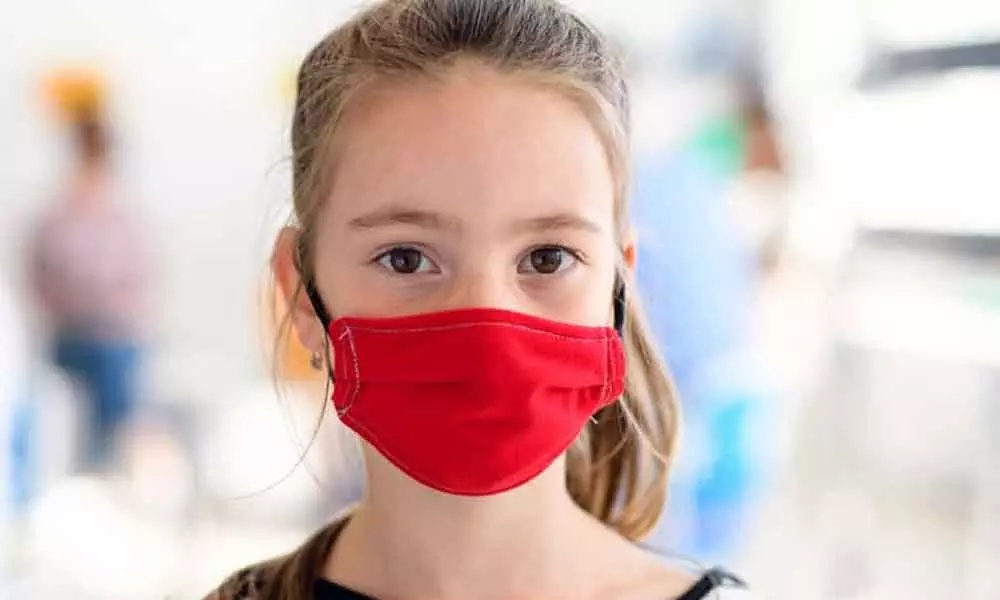Live
- International Kabaddi Federation sanctions World Super Kabaddi League 2025
- Pollution crisis fuels demand for CNG, BS-6 vehicles during wedding season
- Solar panels empowering UP farmers, says Yogi
- Bomb cyclone leaves hundreds of thousands without power in US
- Is Pushpa-2 Postponed Again? Here’s What Makers Said
- Narsipatnam tank bund my dream project, says Speaker
- MLA Yashaswini slams Errabelli
- Sluggish pace persists at Stamps & Registration Office
- Kanguva’s Box Office Disaster: Is This the End of Suriya’s Mega Hit?
- Maoist killed, jawan injured in encounter
Just In

Representational Image
More than 616 million students remain affected by full or partial school closures in the Covid-19 world today.
More than 616 million students remain affected by full or partial school closures in the Covid-19 world today. On the International Day of Education and as the Covid-19 pandemic nears its two-year mark, Unicef shared the latest available data on the impact of the pandemic on children's learning.
"In March, we will mark two years of Covid-19-related disruptions to global education. Quite simply, we are looking at a nearly insurmountable scale of loss to children's schooling," said Robert Jenkins, Unicef Chief of Education. "While the disruptions to learning must end, just reopening schools is not enough. Students need intensive support to recover lost education. Schools must also go beyond places of learning to rebuild children's mental and physical health, social development and nutrition."
Children have lost basic numeracy and literacy skills. Globally, disruption to education has meant millions of children have significantly missed out on the academic learning they would have acquired if they had been in the classroom, with younger and more marginalised children facing the greatest loss. In low- and middle-income countries, learning losses due to school closures have left up to 70 per cent of 10-year-olds unable to read or understand a simple text, up from 53 per cent pre-pandemic. In Ethiopia, primary school children are estimated to have learned between 30 to 40 per cent of the math they would have learned if it had been a normal school year.
In the US, learning losses have been observed in many states including Texas, California, Colorado, Tennessee, North Carolina, Ohio, Virginia and Maryland. In Texas, for example, two-thirds of children in grade 3 tested below their grade level in math in 2021, compared to half of children in 2019, the Unicef report says. In several Brazilian states, around 3 in 4 children in grade 2 are off-track in reading, up from 1 in 2 children pre-pandemic. Across Brazil, 1 in 10 students aged 10-15 reported they are not planning to return to school once their schools reopen. In South Africa, schoolchildren are between 75 per cent and a full school year behind where they should be. Some 4,00,000 to 5,00,000 students reportedly dropped out of school altogether between March 2020 and July 2021.
Coming to India, there is not any holistic study itself other than that of some organisations. There is nothing to give us a real picture. One thing for sure, follow-on consequences of school closures are on the rise. In addition to learning loss, school closures have impacted children's mental health, reduced their access to a regular source of nutrition, and increased their risk of abuse. A growing body of evidence shows that Covid-19 has caused high rates of anxiety and depression among children and young people, with some studies finding that girls, adolescents and those living in rural areas are most likely to experience these problems.
More than 370 million children globally missed out on school meals during school closures, losing what is for some children the only reliable source of food and daily nutrition. Do we have a responsibility or not to protect these children from a bleak future? We have already robbed them of their future ecologically destroying the world wantonly. Now so many of them are not even being equipped properly to deal with the uncertain future. Is anyone listening?

© 2024 Hyderabad Media House Limited/The Hans India. All rights reserved. Powered by hocalwire.com







